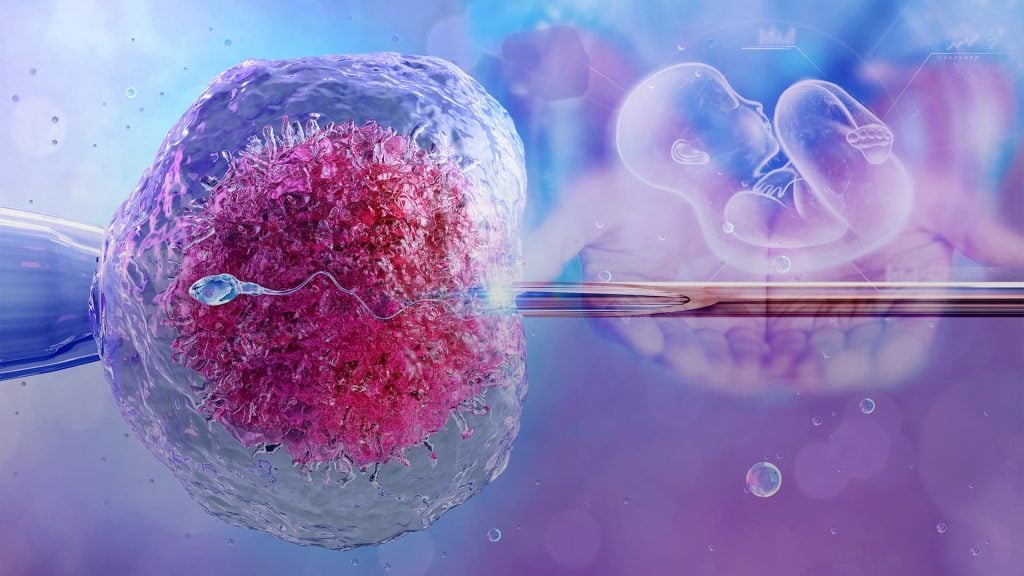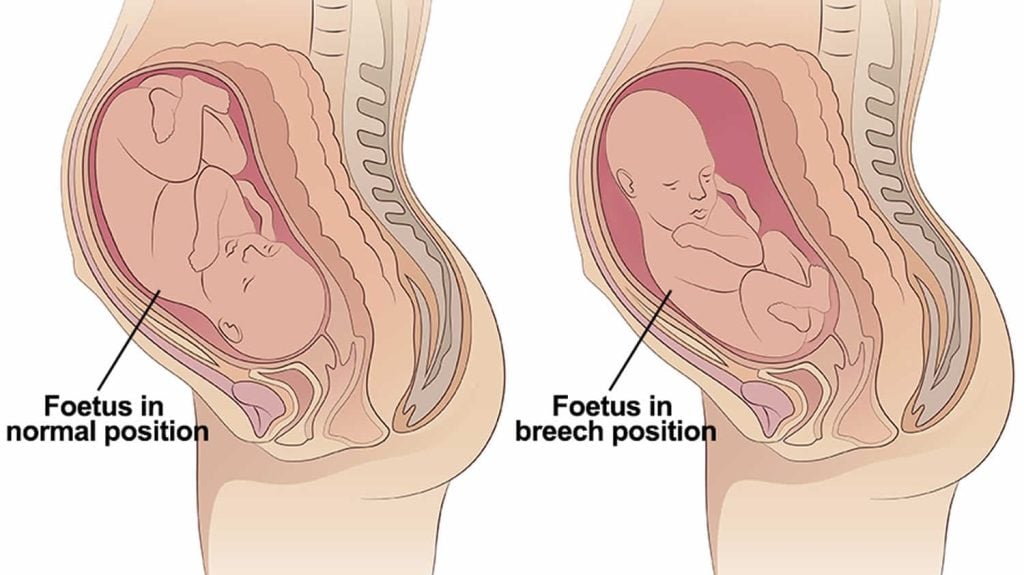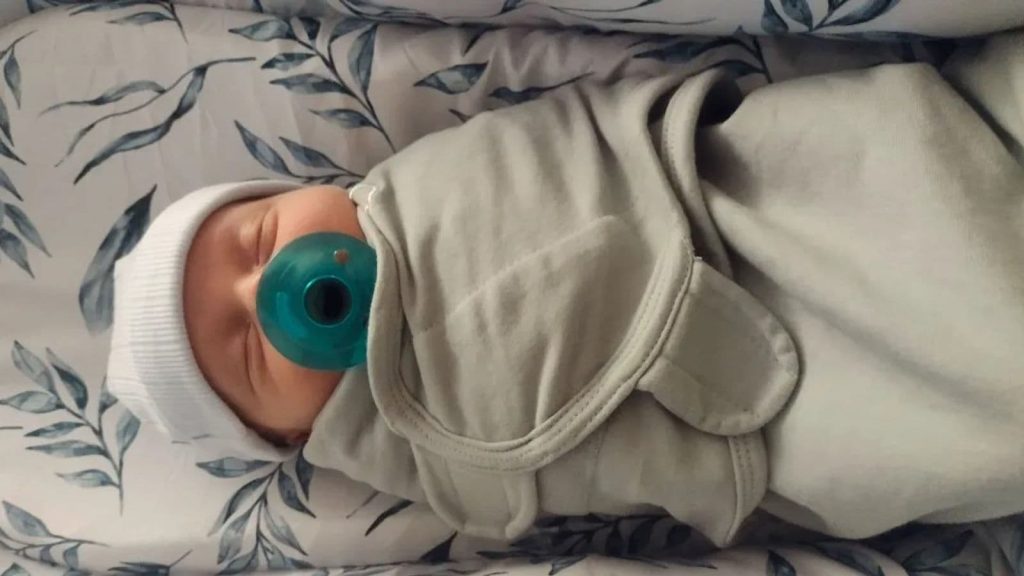A newborn can’t be that complicated, right? We know how conception works, gender is random, and we understand that various influences after birth can shape an infant’s development. However, the truth is more bizarre and varied than these factors. Factors like the fact that if mothers spend more time in the sun, they may give birth to taller children. Or that if they’re hungry or living during a famine, they will be more likely to give birth to a daughter. And that’s not even taking into consideration the impact that AI and robotics are having, allowing us to create human embryos remotely. Here are ten unsettling facts about babies that will flip everything you thought you knew on its head.
The IVF club is bigger than you thought
Since 1978, it’s been a popular fertility option for those who find it difficult to get pregnant naturally. The tech might be old, but it’s very effective—so much so that a “test tube” baby is born every 35 seconds. Over 13 million people across 101 countries have been born via IVF, and that’s not even counting the countries that don’t report IVF statistics or places like Australia, where the IVF registry didn’t exist until the early 1980s. This means that more than 4 million additional births could be missing from that final tally.

Winter babies start crawling earlier
Apparently, if you’re born in the cold weather months, you were probably a crawling champ. A 2014 study from Israel’s University of Haifa split 47 babies into two groups. One was born in winter/spring, while the other was born in summer/autumn. Parents were instructed to report on milestones, and combined with professional assessment in the homes, the study found that kids born in winter began crawling up to 5 weeks earlier. Experiments in Japan and Colorado yielded similar results, although in Canada, there wasn’t a major difference, perhaps because home temperatures stay the same due to indoor heating, and the seasons don’t contrast as much as in the other countries.
@vothexq2 Why Babies Sleep Outside in Winter #usa #amazing #factsonly
Summer babies are healthier
One 2015 study in the UK found that among 500,000 people, summer babies had a heavier weight and grew taller into adulthood than winter babies. The study also found that girls began puberty later, which is a sign of good health. We don’t know exactly why summer is the best time to deliver a baby, but some experts theorize about “the sunlight effect,” hypothesizing that mothers who get more sunlight in their second trimester absorb more vitamin D, which may help with the baby’s development in the womb.
@xo.ssamira Baby enjoying her @Mambobaby 🙈🥰 #babygirl #baby #mambobabyfloat #summer #babysummer #fyp #parati
♬ Hawaiian Roller Coaster Ride – Mark Keali’i Ho’omalu & Kamehameha Schools Children’s Chorus
The first remotely created baby
In the search to improve reproductive technology, scientists have developed an incredible new tool to remotely operate IVF (i.e., it can be controlled in one country and performed in another). The goal of this is to automate one process required in IVF, it’s an ultra-delicate 23-step procedure that aims to inject a single sperm into an egg. This operation frequently damages and destroys eggs, but automation will hopefully end that. It can also reduce the time-consuming nature of the task when completed manually. In 2025, the first baby was born with this automated treatment.

Older moms give birth to smarter kids
You would think that age doesn’t have anything to do with a child’s IQ, but you’d be wrong. Cognitive tests show that children who had older mothers outperform their peers who had younger mothers. 40 years ago, the opposite was true, so what happened? In developed countries, older mothers often have more resources, are more likely to be educated or established in careers, are financially stable, avoid smoking, and are hence better prepared to raise a child. Decades ago, this wasn’t true of older moms. Additionally, firstborns perform better on cognitive tests because they receive more parental attention and resources rather than competing with a sibling.
@so.cute.baby100 80 year old mom and her babies #worship #cutebaby #cute #happy #babyhappy #lovebaby #curiosity #aibaby #fy #strange
Loading…
Breech births are genetic
This isn’t necessarily the good kind of inheritance. It turns out that you can inherit the position you’re born in from your parents. Healthy babies come into the world headfirst, but one in twenty babies comes out backwards, which also comes with health complications and potentially death. As a result, predicting this kind of birth to see which babies are at risk is vital. A major Norwegian study in 2008 showed that a firstborn child was twice as likely to have a breech birth if one parent (or both) was a full-term breech baby.

The oldest baby to be born was 30 years old
In 1994, a woman called Linda Archerd and her husband had a baby girl via IVF. The procedure yielded three other embryos, which the couple decided to freeze. Linda put them up for adoption decades later, and another couple happily accepted one. The egg was thawed and implanted, and the baby was born in July 2025. Since he was frozen for just over 30 years, this technically makes him the oldest baby in the world!

Famine leads to more girl births
Boys are often born more frequently than girls, but during times of famine, female births tend to dominate. One theory says that having a girl can improve the odds of a mother’s DNA surviving a prolonged crisis like this and that only a few strong males can reproduce in a survival situation. However, almost all women are capable of giving birth, even when they are significantly malnourished. Still, we’re not sure exactly how hunger impacts an unborn baby’s gender. One study found that male embryos can be lost if the mother’s blood sugar is consistently low, and hence, more female embryos survive having a hypoglycemic mother.
@yadro.greenscreen
Space kids don’t exist (yet)
All the steps that contribute to a successful birth rely on luck. 75% of embryos are lost before someone even knows that they’re pregnant, and for the pregnancy to continue, various milestones must be met. Space doesn’t guarantee that those milestones will be achieved, and scientists don’t know how space (and the lack of gravity) will impact a child’s development. With everything floating, a child may slip out of a doctor’s hands, and a collision may happen. There’s also the risk of cosmic rays and radiation. Ironing out all these details, from conception to delivery and raising a child, is paramount since humans may eventually settle on Mars!
@ai_mashupz Babies in Space! Because why not?! #ai #cutebabies #justforfunn #aivideo #spacetok #cutenessoverload
The last human baby
Society is constantly oscillating over the birth rate. Everyone fears that excessive birth rates will deplete resources, transforming us into a dystopian wasteland. When these rates drop, people panic that we’re headed toward extinction. If (worst-case scenario) we do suffer a disaster that erases fertility, humans would last another 70 years or so. Although life spans are longer, this is driven by medicine and security. As the last child ages, the human race won’t be able to maintain the production of medicine nor maintain fodder or drinking water. Society will lose order, and violence might kill the last human. If it doesn’t, then a lack of health care and proper nutrition just might!
@elisammdlii






